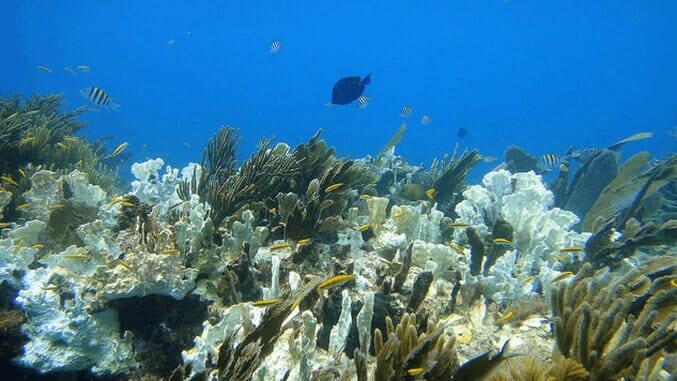Damage from Bleaching Now Affects Nearly All Coral Reefs

Three years of pervasive bleaching has damaged all but three of the 29 coral reefs that are contained within the United Nations Educational, Scientific and Cultural Organization (UNESCO) World Heritage sites. Further, if greenhouse gas emissions continue to remain at current levels, all reefs will essentially cease to function as proper ecosystems by the end of the 21st century.
According to the U.S. National Oceanic and Atmospheric Administration (NOAA), coral reef bleaching occurs “when corals are stressed by changes in conditions such as temperature, light, or nutrients,” after which point they “expel symbiotic algae living in their tissues, causing them to turn completely white.” Due to the fact that the Earth has consistently reached record-breaking temperatures worldwide for the past several years, the reefs have not only been subject to increasingly warmer temperatures, but they have also had consistent exposure to higher levels of solar radiation. Both of these factors—and diluted water intermixed with polluted runoff from corporations’ toxic waste—contribute most heavily to the stressful conditions that cause coral to turn white.
As reported by Science Magazine, reefs can eventually recover from bleaching, but the process can take anywhere from 15 to 25 years. Researchers project that the interval between bleaching periods will drastically shorten if carbon dioxide emissions continue to increase on the current trajectory. If this happens, researchers also predict that more reefs like a significant number of those in Australia’s Great Barrier Reef will be bleached beyond the point of no return, forcing UNESCO to declare them as dead.